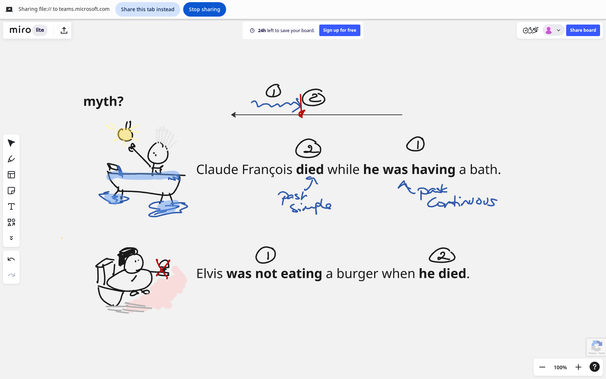Another person who doesn’t know how to use the phrase, “begs the question”. When will this madness end? 😆
#grammar #begsthequestion
#Grammar
Old pleasures never die. This from 18 years ago.
https://www.jeremycherfas.net/blog/an-old-geezer-reminisces-about-situation
Why AI Gets Grammar Wrong But Sounds Almost Right
When AI gets grammar wrong, it’s not always obvious at first glance. But if you’re too quick to hit the accept change button from your grammar checker, you could be undoing great writing. You might think a suggested change looks fine, because it’s usually at a word or clause level. But when you look at…
https://justpublishingadvice.com/why-ai-gets-grammar-wrong/
From NPR:
"Negotiators are beginning talks today in Egypt in an attempt to finally end the war in Gaza. "
It's use of the adverb "finally" that puzzles me.
#Verbs #Adverbs #Grammar #Adjectives #Words
omggg some guy flipped shit kittens on me for using the perfect word "cromulent" to describe the giant weta bug someone found online, hes obviously got some other issues going on to flip out over a word from the fucking #simpsons but let me tell you he LOOOOVES when i say"sure, sweaty to him lmaooooooo #grammar
LanguageTooler GmbH released #Grammar and Spell Checker - LanguageTool for Chrome version 9.4.1. https://chromewebstore.google.com/detail/rechtschreibpr%C3%BCfung-%E2%80%93-lan/oldceeleldhonbafppcapldpdifcinji
Annoyed? Unfairly treated? Express yourself in Japanese with the passive voice
Come February, some Japanese workers will be receiving what’s called a 内々示 (nai-naiji, preliminary informal notice) from their 人事部 (jinji-bu, human resources departments). These 内々示 precede 内示 (naiji, informal notices) tha…
#Japan #JP #JapanNews #grammar #Japanese #Japanesenews #JLPTN3 #jlptn4 #news #nihongo
https://www.alojapan.com/1384319/annoyed-unfairly-treated-express-yourself-in-japanese-with-the-passive-voice/
https://www.alojapan.com/1384319/annoyed-unfairly-treated-express-yourself-in-japanese-with-the-passive-voice/ Annoyed? Unfairly treated? Express yourself in Japanese with the passive voice #grammar #Japan #JapanNews #Japanese #JapaneseNews #JLPTN3 #JlptN4 #news #nihongo Come February, some Japanese workers will be receiving what’s called a 内々示 (nai-naiji, preliminary informal notice) from their 人事部 (jinji-bu, human resources departments). These 内々示 precede 内示 (naiji, informal notices) that will tell them of upcoming 人事異動 (jinji-idō, personnel transfe
Storied delves into a fascinating debate in linguistics.
https://www.youtube.com/watch?v=bbrh_t8WhBc
10/x
Crunchyroll, I'm begging, please use quotation marks, different capitalization, or italics, or something to clearly indicate where the show's title starts and ends. I spent far longer than I care to admit fascinated by the idea of someone trying to become the strongest anime.
Jane Goodall's first scientific paper was sent back to her with amendments, the editor having replaced every "he"/"she" (referring to chimpanzees) with "it", and every "who" with "which". She changed them back, refusing to mark non-human animals as inferior.
https://stancarey.wordpress.com/2015/05/27/annals-of-animals-which-get-who/
#JaneGoodall #language #EnglishUsage #grammar #PoliticsOfLanguage #pronouns #science #animals
Annals of animals which get ‘who’
In a local newspaper some time ago I read about ‘dormice . . . who nest in shrubs and hedgerows’. The grammar of this phrase struck me enough to write a brief post on the different kinds of antecedent for which we use the relative pronouns who, that, and which.
When referring to animals we usually use that or which, reserving who for people, or entities that comprise people. But who may also be used for animate entities with personality or the implication thereof, and this includes non-human animals – even dormice, I was pleased to see.
As the table below shows, who is especially likely to be used with pets, companion animals, or domesticated or very familiar animals. If the creature has been personalized with a name or by establishing its sex, there’s a good chance it will warrant who.
I read a couple of nice examples recently in Claire Keegan’s short story ‘Men and Women’, from her debut collection Antarctica:
She watched the sudden, fast shadows of swallows who flew past her window in fleeting pairs, subtracting light from her room, and marvelled how living things could suspend themselves in mid-air.
I sit by the window and keep an eye on the sheep who stare, bewildered, from the car.
And two more in Luis Bunuel’s autobiography My Last Breath, translated by Abigail Israel:
At one time or another, we had monkeys, parakeets, falcons, frogs and toads, grass snakes, and a large African lizard who the cook killed with a poker in a moment of terror.
Luis also had a hatbox filled with tiny gray mice whom he allowed us to look at once a day
The second of these is from an article by Bunuel’s sister Conchita that was published in the French magazine Positif and reproduced in My Last Breath. Both pronoun choices can presumably be attributed to the translator. The inconsistency in selecting whom is a little curious too.
For a more thorough treatment of attitudes to the use of who with animals, see Gaëtanelle Gilquin and George M. Jacobs’ paper ‘Elephants Who Marry Mice are Very Unusual: The Use of the Relative Pronoun Who with Nonhuman Animals’. It opens with an interesting story about Jane Goodall’s research in Tanzania:
When Goodall submitted her first scientific paper for publication, it was returned to her by the editor to be amended. In every place where she had written (he) or (she) to refer to chimpanzees, the words had been replaced with (it). Similarly, every (who) had been replaced with (which). In an effort to rescue the chimpanzees from “thing-ness” and restore them to “being-ness,” Goodall stubbornly changed the words back.
Gilquin and Jacobs review dictionaries, grammars, style guides and the British National Corpus to examine attitudes towards the usage and to analyse its different motivations and contexts. This table is from their survey of the BNC and shows the degree of familiarity, intelligence, and perhaps other characteristics likely to earn an animal the privilege.
Update:
I’ve since come across many interesting examples of this broad phenomenon, including a dog being called a ‘person’, and who being applied to a tree, which may warrant another post on the topic.
#anaphora #animals #grammar #JaneGoodall #language #LuisBuñuel #nature #pronouns #relativePronouns #that #usage #which #who
@madgeface @emery This has triggered me for a phrasing that bothered me for a long time and I have only recently started to get used to it - the positive “anymore.” “Anymore “ regular usage is “people don’t wear bell bottoms anymore” and “we don’t use rotary phones anymore.” Positive anymore is “we use smart phones anymore” for something we do now that we didn’t used to.
Do you use the positive anymore construction? Have you noticed it? #grammar #linguistics




